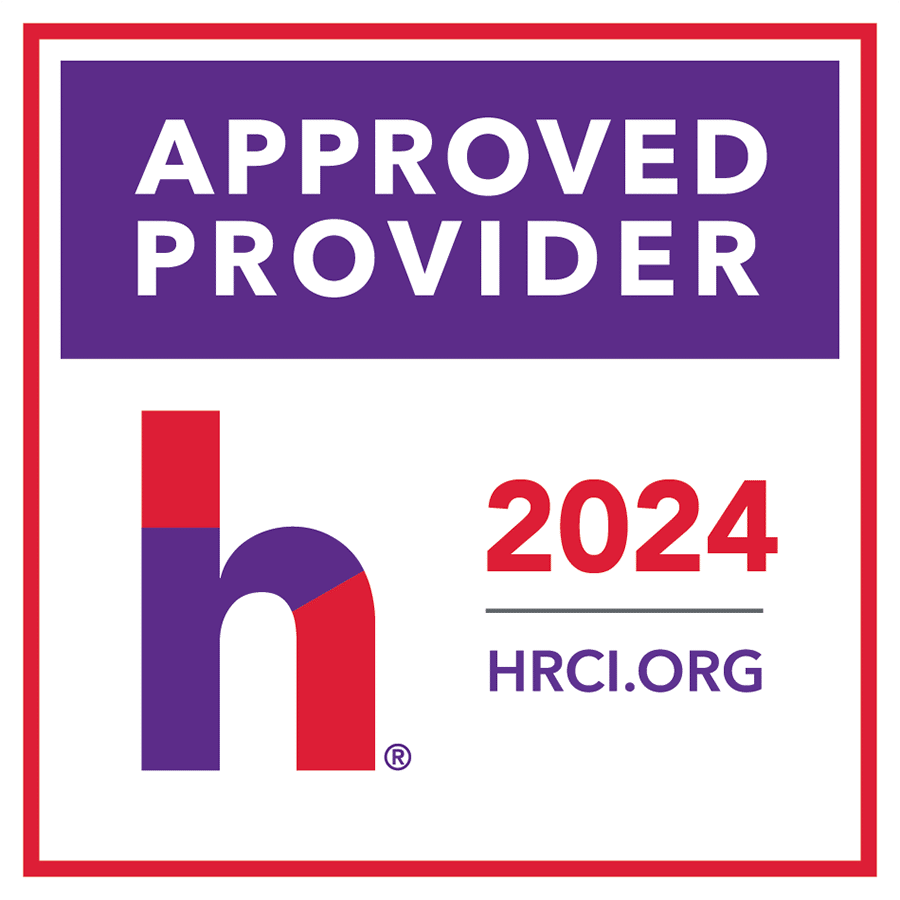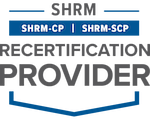Description
RECORDED TRAINING COURSE


Workplace Harassment or any kid of discrimination at the workplace must be intolerable at any workplace. Laws like the Civil Rights Act of 1964 have improved the working lives of many, there are still serious issues that require attention and action. Human Resource professionals are especially important for creating hospitable and inclusive work environments. EEOC and employer, they two can work together to create a more diversify workplace where they strive to frame a level playing field. If the HR doesn’t listen to an employee complaint as a employee you have the right to restore to the EEOC and file the complaint with the EEOC.
Policies that discriminate against protected classes of individuals, either explicitly or accidentally, are illegal. Thus, even unintentionally discriminatory practices that disparately impact those that are vulnerable to prejudicial treatment must be prevented. Acts such as the Civil Rights Act of 1964 and EEOC help out employees. And, here Human Resources manager play a crucial role. When it comes to workplace harassment there must be a individual whom the victim can trust and contact and rely on in the need of hour. Because, they are the very first point of contact. When it comes to workplace harassment there must be a individual whom the victim can trust and contact and rely on in the need of hour.
Investigating an employee’s claim of discrimination or harassment requires immediate action on the part of employers to satisfy the recommendations of the Equal Employment Opportunity Commission (EEOC). Workplace harassment is a serious issue that continues to plague many organizations. The EEOC strongly recommends that employers swiftly investigate and resolve employees’ complaints of workplace harassment and discrimination.
If an employee lodges a complaint against a colleague or the employer itself, an investigation is a required step since courts have ruled that failure to investigate on the part of an employer is akin to discrimination.
Responsiveness to a complaint and an investigation will not only yield the best information and evidence, but it will also enhance both the investigator’s and employer’s credibility. Investigations can help the organization identify and resolve internal problems before they become widespread.
Given that every EEOC complaint has the potential to become a lawsuit, employers should investigate every case in a manner in which it can be presented to a court of law, if necessary. As potentially disruptive as investigations can be, they must be prompt, thorough and effective to ensure all parties’ protection.
SESSION HIGHLIGHTS:
- Functions of the EEOC
- EEOC Complaints and Resolution
- Federal legislation requiring equal treatment of employees
- Title VII of the Civil Rights Act of 1964: Original protected classes and currently-acknowledged protected classes; Amendments to Title VII in 1991 and 2020
- Disparate treatment vs disparate impact
- Various forms of harassment & applicable court cases
- How is sexual harassment defined?
- What is not harassment?
- Quid-Pro-Quo harassment and Hostile Work Environments
- Best Practices for avoiding claims of sexual harassment
- Determining is the harassment is severe or pervasive
- Sexual harassment red flags
- Process of filing a charge with the EEOC
- Common reasons employees state for not filing a claim
- Charges of retaliation and discrimination
- Formal complaints and the investigative process
- Process for employees to follow when filing a charge of discrimination with the EEOC and State/Local Agencies
- What employers can expect once a charge is filed?
- Conciliation process
- New legislation regarding forced arbitration: Ending Forced Arbitration of Sexual Assault and Sexual Harassment Act of 2021
- Mediation process
- EEOC determinations
- Front Pay in lieu of job reinstatement
- EEOC penalties levied against employers
- Tips when dealing with the EEOC
- Affirmative Action programs
- The cost of non-compliance
Why You Should Attend:
EEOC Complaints are very high in the numbers. An employee files a complaints due to the various reasons. The EEOC recommends prompt investigation and resolution of workplace harassment and discrimination complaints. EEOC highlights numerous standards and regulations to be fulfilled when harassment is reported. Organizations have legal and moral responsibilities to support diversity in their workplaces and to ensure compliance with all equal employment opportunity rules and regulations. Unfortunately, workplaces have not always been welcoming to women and minorities, and many people have faced prejudicial behavior when seeking employment or while on the job. Although, the Civil Rights Act of 1964 do provide employees some advantages, yet employers have to go a long way.
Through this session, participants will gain an insightful perspective on EEOC’s take and investigation of harassment and discrimination cases. Also, the session will focus on recent legislation (Ending Forced Arbitration of Sexual Assault and Sexual Harassment Act of 2021) and how professionals can navigate through regulations without hefty penalties, fines and lawsuits.
Who Should Attend:
- Senior Leadership
- Managers and Supervisors
- Project Team Leaders
- Human Resources Professionals
- Operations Professionals
- Recruiting Professionals
- Employees
Note: You will get access to the Recording link and E-Transcript; in your account and at your registered email address.





